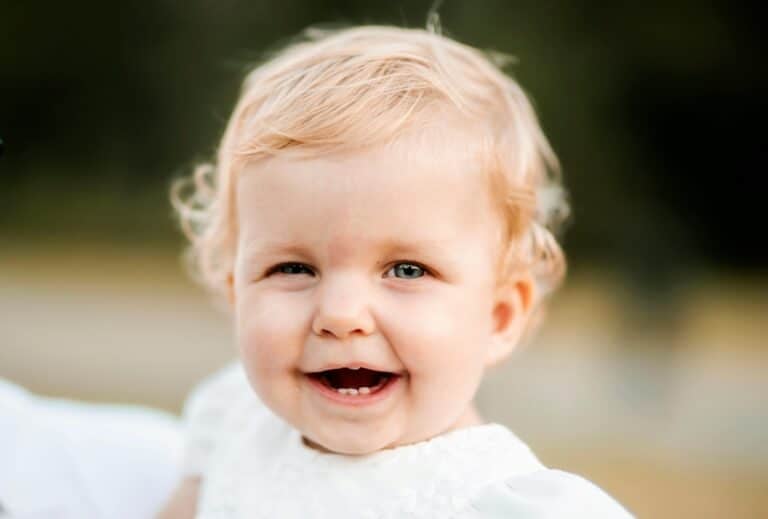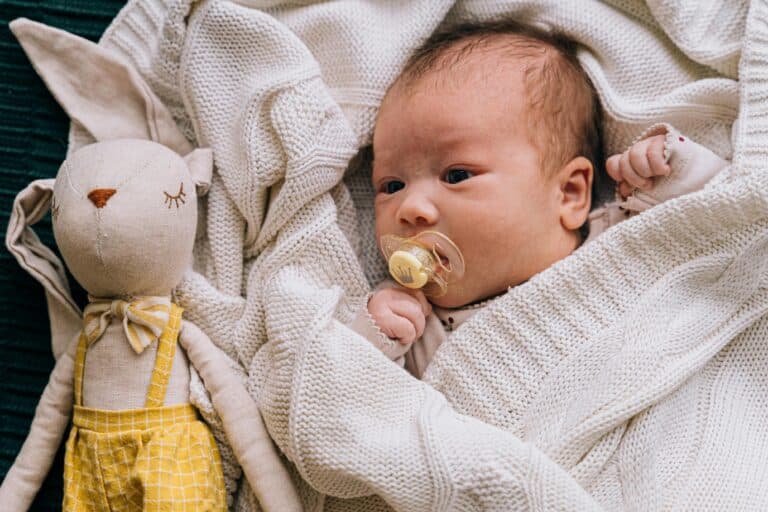This post may contain affiliate links to items I love, and I am confident you will too! All opinions are my own, however, I may receive a small commission on purchases. As an Amazon Associate I earn from qualifying purchases. For any health advice I give on nutrition and weight loss, make sure you check with your doctor, as I am not a health professional.
You’re so excited about your new baby, and currently enjoying adapting to life with your bundle of joy, and boom! You notice that a handful of your hair seems to come off anytime you shower, or run a comb through your beautiful locks. Not only that, you’ve even noticed it is the same shocking reality for the hair in other parts of your body.
This is the beauty challenge every new mom around the world faces. So, don’t worry mama, you’re not alone in this. For the most part, experts say that postpartum hair loss is absolutely normal and temporary. Even though it seems like you are creeping very close to baldness with each passing day.
Hair loss after childbirth is called Postpartum hair loss, and it is just hair loss related to childbirth. It is caused by a quick hormonal shift, caused by a sharp drop in estrogen after pregnancy. It occurs during the resting phase (telogen phase) after pregnancy, where your hair strands are released, and they fall out. This is typically anytime between one and six months postpartum.
These rapid hormonal changes are the major factor behind postpartum hair loss. However, a deficiency in iron, which may be the case if you lost a lot of blood during delivery, emotional and physical stress of childbirth, poor diet and sleep deprivation may also contribute to postpartum hair loss.
According to The American Academy of Dermatology (AAD), Postpartum hair loss is sometimes referred to as “excessive hair shedding” and it tends to reach its peak around four months postpartum, allowing the hair to regain its fullness within six to nine months postpartum.
The AAD also advises that you seek help from a board-certified dermatologist if your hair does not regain normalcy within 9 – 12 months postpartum. Also, if you notice tenderness, redness and itching, flakes, bumps, or rashes seek professional advice.
You might be wondering;
- How much hair loss is normal
- How to prevent postpartum hair loss
- What are the best foods for postpartum hair loss
How much hair loss is normal postpartum?
An average person loses around 100 strands of hair a day. While postpartum mothers lose approximately quadruple this amount. You don’t need to go counting, you may lose about 400 strands a day. Unfortunately, clogged shower drains and hair-matted pillowcases are totally normal.

How to prevent postpartum hair loss
There is not a lot you can do to prevent postpartum hair loss from happening. “Once the triggering event happens and that shifts the hair cycle, there is nothing you can do to prevent it from coming out,” says Shani Francis, M.D., a dermatologist and chief wellness officer of Ashira Dermatology in Gurnee, IL.
However, there are measures you can take to ensure postpartum hair loss does not continue for much longer than it should. These simply includes doing your best to take care of your body by;
- Eating only healthy foods
- Getting sufficient rest and allowing your body to do its thing
- Avoid brushing your hair too hard
- Avoid styling your hair as heat contributes to breakage and damage
Good news is, your body has all it takes to figure this process out, so all you’ve got to do is relax and do less.

Best foods for postpartum hair loss
- Proteins: The right type of nutrient means your hair can become stronger and get back to the growing (anagen) phase faster. “80 – 85% of your hair contains a protein called keratin. Dietary proteins are your hairs’ building blocks—they make your hair strong and keep it in the growing phase” according to Anabel Kingsley, a trichologist and brand president at Philip Kingsley. Proteins are used by the body to build tissue cells. These include your hair, nail and skin cells. So once proteins are present in your body at the right quantity, your postpartum hair loss will not linger for very much longer. For some great protein powders for breastfeeding moms, check out this article!
- Vitamin D: This vitamin plays a major role in the production of hair follicles. It can be gotten from the morning sun or food sources like milk, portobello mushrooms, sardines and egg yolks.
- L-lysine: This is an essential amino acid that helps your body create collagen. Which is responsible for the shape and elasticity of your hair. Food sources for L-lysine include; red meat, chicken, eggs, beans and cottage cheese.
Supplements to help with hair loss
In the meantime, these are some supplements recommended by experts for you postpartum. They can help your hair feel and look thicker, until your hair is back to normal. Finally, some good news!
- Milkdust Mermaid Hair: If you feel like you really need help on the inside for your hair loss or to prevent it, this supplement can help. With vitamins and minerals to keep your scalp in balance, promote strong healthy hair growth and prevent further significant hair loss. Mermaid Hair comes in both tablets and gummies.
- Oribe Shampoo for Magnificent Volume: The AAD also recommends the use of volumizing shampoos for postpartum hair loss, as it contains ingredients like protein that coat the hair, making it look fuller. It contains lupine protein and saw palmetto extract, which is known for its ability to balance your scalp, stimulate hair follicles for thicker locks
- Rahua Voluminous Conditioner: This conditioner is pretty much weightless and is suitable for postpartum hair loss. It is free of parabens, phthalates, and sulfates—plus it is vegan and cruelty-free
Postpartum hair loss is totally normal and is one of the things beautiful women go through. A sacrifice we make in order to bless the world with adorable children – you are a superwoman! Always remember that as you gently navigate this phase.




